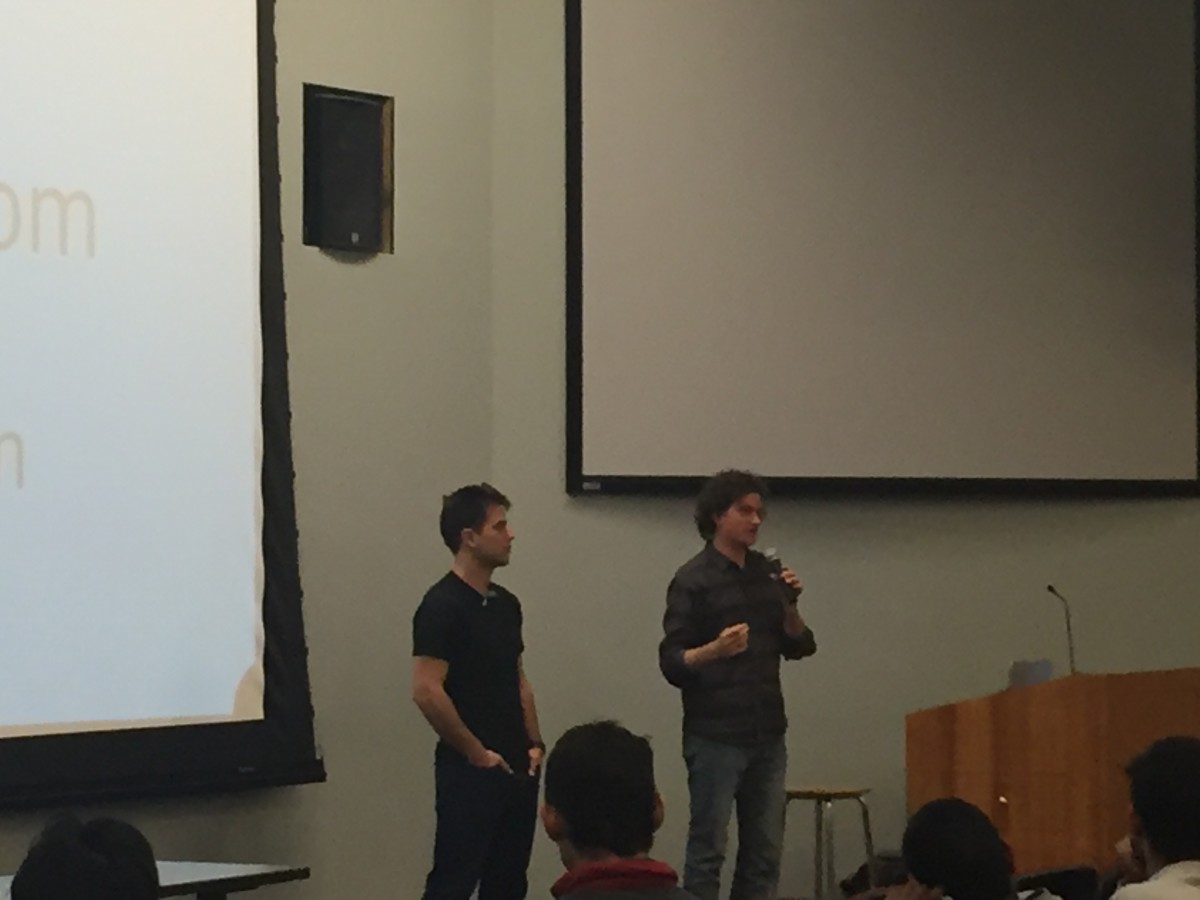Before the winter edition of HopHacks kicked off, a big crowd turned out at Johns Hopkins to hear about nurturing startups at scale from a pair of Y Combinator staffers.
The big takeaway of this YC Winter Tour for startups is pretty straightforward: applications for the biannual seed accelerator program are open. The Mountain View, Calif.-based accelerator program runs two batches each year. It provides $120,000 to each startup in exchange for 7 percent equity.
Beyond details on how one of Silicon Valley’s big accelerator programs works, however, the duo of managing partner Dalton Caldwell and hardware specialist Luke Iseman gave a talk that shows building startups is a similar experience no matter where you are. Here are a few of the standout insights:
1. Focus
Throughout the talk, the two YC staffers returned to the mantra of staying focused on building your company. Rather than thinking that a program like YC will be the ticket to success, Caldwell said the key is to start within. “If you want to start a company, the best way to be successful is to just start a company,” he said. Caldwell said companies at YC spend time focusing on what’s important, and avoiding the trap of doing things that are tangential to building a startup.
2. Ship
Another key is to ship product early and often. Coming from the hardware perspective, Iseman talked about the importance of having something physical to show. He said his attitude is to build things first — even if it’s not perfect — and ask questions about it later. At YC, entrepreneurs are further helped by services like 3D printing that can provide prototyping services, he said. Having something to show also provides a way to get user feedback to improve the product, which can be just as valuable.
3. Grow
Along with starting the company, another key to building a successful startup is growth, Caldwell said. Entrepreneurs at YC spend a lot of time figuring out how to measure progress, even when if a business doesn’t fit into the category that shows immediate profits or huge volumes of users. “Come up with a metric to figure out what your progress is every week,” he said.
4. About those B2B companies…
With the unicorns like Google, Facebook, Uber — plus YC companies Airbnb, Reddit, etc. — the “Silicon Valley startup” is normally associated with consumer-facing products and apps. But in YC’s current “batch,” the “vast majority” of companies are business-to-business. So don’t fret, if you’re building a B2B company (like many of you on the East Coast are), it has a place in a Silicon Valley mindset. Caldwell said B2B startups don’t get a lot of national tech press attention because they aren’t necessarily for the general public, and they may sometimes even be boring. But they’re still profitable opportunities, he said. In fact, YC companies cover a number of verticals, with nuclear fusion and quantum computing representing a couple recent examples. “We love unsexy industries,” Caldwell said.
Before you go...
Please consider supporting Technical.ly to keep our independent journalism strong. Unlike most business-focused media outlets, we don’t have a paywall. Instead, we count on your personal and organizational support.
Join our growing Slack community
Join 5,000 tech professionals and entrepreneurs in our community Slack today!

The person charged in the UnitedHealthcare CEO shooting had a ton of tech connections

From rejection to innovation: How I built a tool to beat AI hiring algorithms at their own game

Where are the country’s most vibrant tech and startup communities?


